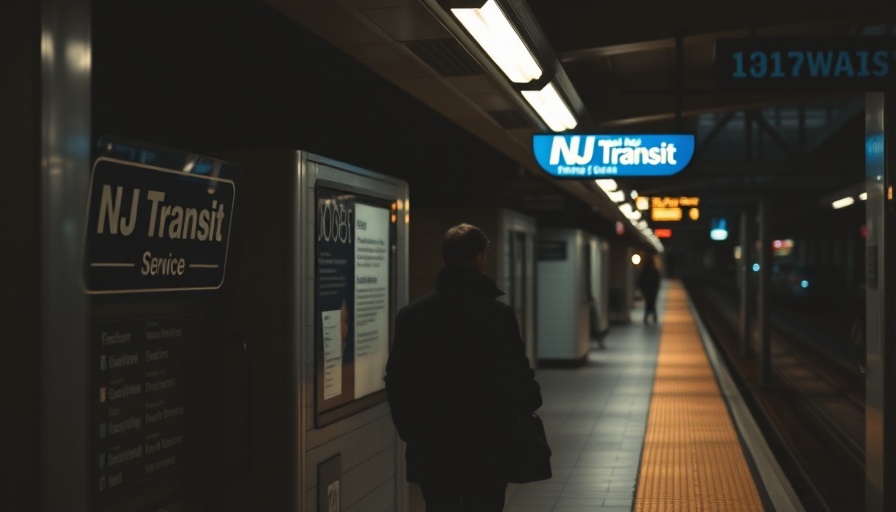
NJ Transit Strike: A Wake-Up Call for Commuters and Businesses
On May 14, 2025, New Jersey Transit faced a significant disruption as train engineers went on strike, stranding approximately 350,000 commuters across the state. This unexpected labor action has raised urgent concerns not only about the immediate inconvenience to daily travel but also about the broader implications for local businesses and the economy.
The Impact on Daily Commuters
The strike has thrown the schedules of many working professionals into chaos, forcing them to seek alternative transportation or adjust their work hours. The density of New Jersey’s workforce is heavily reliant on NJ Transit, a vital artery feeding into New York and other bustling economic hubs. As businesses scramble to accommodate their employees’ work patterns, the strain on local economies could become pronounced, particularly for establishments near major transit points where foot traffic is vital.
Broader Economic Consequences
As businesses adapt to the strike, the economic fallout could reflect in various ways. A sudden drop in commuter traffic could lead to a decline in sales for nearby shops and cafes, potentially affecting revenue streams and leading to layoffs in some cases. Moreover, this situation could highlight a pressing need for reforms in transit systems across the Northeast, pushing policymakers to consider improvements that safeguard against such disruptions in the future.
Lessons for Businesses and Policymakers
This strike serves as a critical reminder for businesses to explore flexible work solutions, whether through remote work policies or investing in logistics and transportation efficiencies. Furthermore, local governments and transit authorities must reassess labor relations and the structures that lead to disputes, ensuring better negotiations and contingency plans. The goal should not only be resolving the current strike but also preventing future occurrences that threaten economic stability.
Conclusion: Taking Action for a Better Future
As New Jersey revisits its transit policies and business owners reconsider their operations, the developments from this strike underscore the importance of adaptability in today’s unpredictable climate. For professionals relying on consistent transit, solutions must be sought, whether through advocacy for systemic changes or by embracing remote work where possible. The response to this event can shape future business strategies and commuter policies alike.
 Add Row
Add Row  Add
Add 



Write A Comment